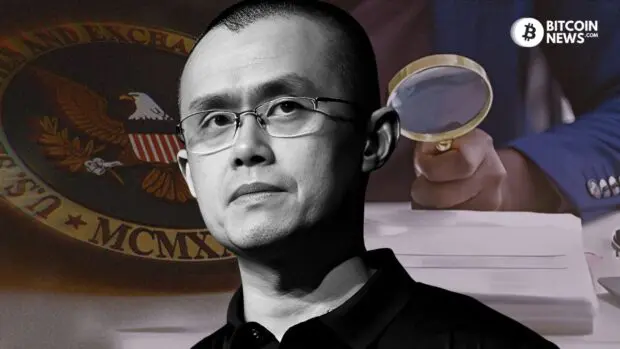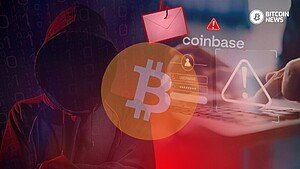In a landmark move within the digital asset industry, Binance, the world’s leading exchange, has entered into a series of unprecedented agreements with U.S. regulators. These agreements mark a pivotal shift from its previous regulatory stance, ushering in an era of heightened oversight and compliance. John Reed Stark, former SEC lawyer went into a deep analysis of the agreement, likening the Binance SEC deal to a “financial colonoscopy.”
Related reading: SEC to Pursue Binance Lawsuit Regardless of $4.3B Fine
Binance SEC Deal Unveiled
The Department of Justice (DOJ) recently unsealed agreements that outline extensive oversight of Binance’s operations. These agreements require Binance to grant U.S. authorities access to a comprehensive array of documents, records, and resources upon request.
The settlements mandate a significant level of compliance, covering various aspects such as policies, internal controls, and anti-circumvention measures. Former SEC lawyer John Reed Stark characterized these commitments as a substantial financial burden for Binance, likening them to a “24/7, 365-days-a-year financial colonoscopy.”
He added:
“I don’t think Binance’s customers have the slightest clue of the ramifications of this plea and consent decree. It’s unprecedented.”
The Regulatory Scope
The agreements also entail rigorous monitoring by the DOJ’s Criminal Division, including sections for money laundering, asset recovery, national security, counterintelligence, and export control. Furthermore, a five-year oversight program by the Financial Crimes Enforcement Network (FinCEN) adds another layer of scrutiny.
Related reading: DOJ Criticized Over Lack of Action by Ex-SEC Official
Stark stated:
“Binance’s settlement requires it to offer years of instantaneous access, audit, examination and inspection to DOJ, FinCEN and all types of financial regulators and law enforcement, exposing the company — and its customers — to a 24/7, 365-days-a-year financial colonoscopy.”
Impact on Binance and Users
This newfound transparency means that Binance’s past transactions from 2018 to 2022 will undergo meticulous scrutiny. The exchange will actively report any detected suspicious activities, potentially affecting its extensive user base and raising valid privacy concerns.
Binance’s Chief Compliance Officer, Noah Perlman, expressed optimism, viewing this shift as an opportunity to set industry compliance standards and enhance trust among users. However, the stringent compliance measures could pose challenges for the company, which previously operated under a more relaxed regulatory approach.
The implications of Binance’s settlement extend beyond its operations. This move sets a precedent for increased government oversight in the entire digital-asset industry, signaling a shift toward strict regulatory compliance and transparency.
Stark’s In-Depth Assessment
Former SEC attorney John Reed Stark highlights the shocking nature of these agreements, likening them to a “financial colonoscopy.” He expresses doubts about Binance’s ability to seamlessly adapt to such intense inspection and predicts potential complications ahead.
Stark expresses a critical perspective on the recent developments. The unsealed DOJ filings shed light on the extensive oversight Binance is now subjected to, with the Compliance Commitments and DOJ Compliance Monitorship imposing unprecedented obligations on the exchange.
Stark explained that the compliance commitments encompass a wide range of areas, and the DOJ monitors mandate is comprehensive, involving various divisions within the DOJ. The level of cooperation required from Binance is emphasized, including facilitating access to information and allowing the monitor to report potential misconduct directly to the government in certain situations.
Stark underscores the monumental investigation Binance faces, not only from the DOJ but also from the Financial Crimes Enforcement Network (FinCEN), with a Consent Decree requiring a monitor for five years. The dissection involves continuous access, audit, examination, and inspection, exposing Binance to constant governmental oversight. Stark anticipates extraordinary opportunities for law enforcement and regulatory teams to uncover “incriminating evidence” continuously.
Regarding the SEC’s supplemental pleading, Stark notes that the SEC is incorporating facts from Binance’s settlement with the DOJ, FinCEN, and the Commodity Futures Exchange Commission (CFTC) into its enforcement action against Binance and Changpeng Zhao (CZ).
He believes that the plea agreements strengthen the SEC’s case, particularly by Binance acknowledging deliberate efforts to subvert U.S. law and attract U.S. customers. Stark predicts that the SEC will leverage the loads of evidence from these agreements to fortify its accusations. He also claims that the immense governmental oversight imposed on Binance may lead to the collapse of the plea deal, potentially resulting in additional charges for the firm and its key figures.
Stark explains:
“To me, it’s only a matter of time before the entire Binance plea deal collapses, resulting in additional charges for Binance, additional charges for CZ and new charges against anyone else (partner, customer, joint-venturer, collaborator etc.) nefariously intertwined with the Binance criminal enterprise.”
Ensuing Challenges and the Road Ahead For Binance
For Binance, this level of compliance means undergoing a profound transformation. The exchange, known for its decentralized approach, now faces the challenge of adhering to rigorous government oversight, a drastic departure from its earlier operational stance.
Binance’s groundbreaking settlement with US regulators signifies a watershed moment in the digital-asset industry. As the exchange navigates this new regulatory landscape, it sets a precedent for heightened accountability and transparency. The implications of this transformative agreement extend far beyond Binance, shaping the future regulatory landscape for exchanges worldwide.
This settlement marks a significant shift toward regulatory compliance and transparency within the industry. As Binance adapts to this new era of intensified oversight, it’s a clear signal that the tides of regulation are turning within.
Related reading:










